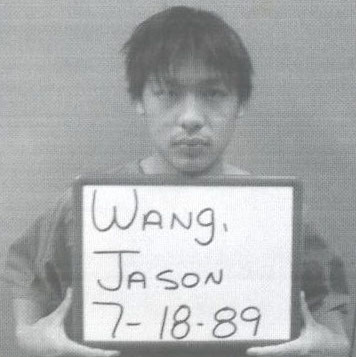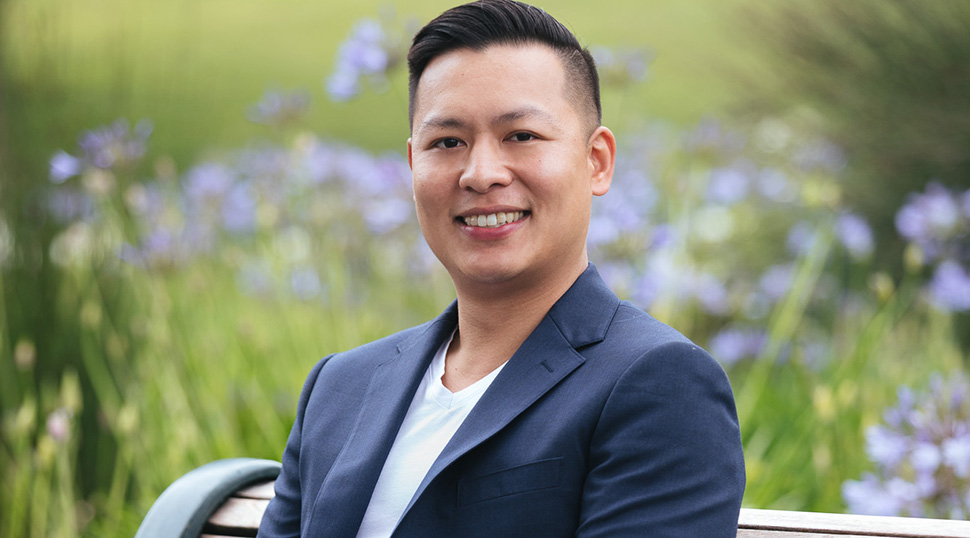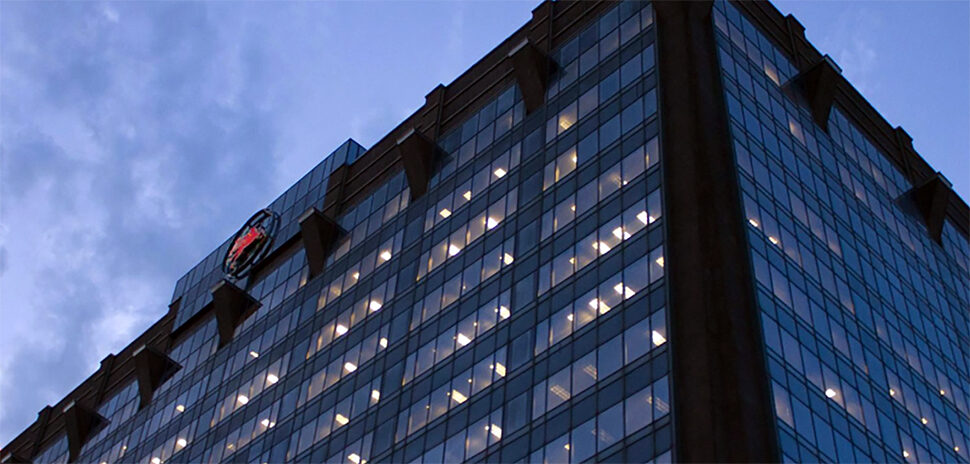As a kid, Jason Wang endured physical abuse from his father and frequent moves across the country, often experiencing racism and isolation. Then he moved to Dallas with his mother, where he fell in with a gang at 13 and was convicted for aggravated robbery at 15. After three years in a high-security Texas juvenile prison, he was released and got his life back on track. He moved home with his mother and attended UT Dallas, earning an MBA and MS International Business degree. But like many with prison records, he found it hard to find a job.
That life path eventually led Wang to found FreeWorld, a nonprofit that offers “legit second chances” to former convicts. FreeWorld helps applicants train for commercial drivers licenses, then assists with job placement to land them career-making jobs as truck drivers who can earn $50,000 to $80,000 a year or more—with a commitment to “paying it forward” by helping to fund the next student’s journey.
2021 Pegasus Prize winner
Today, The Dallas Foundation—the first community foundation in Texas—awarded FreeWorld its 2021 Pegasus Prize. The $50,000 social innovation grant is awarded annually to recognize innovative approaches to addressing community needs.
“The Dallas Foundation is focused on fueling change that enables individuals to reach their full potential,” said Matthew Randazzo, president & CEO of The Dallas Foundation, in a statement. “[FreeWorld] embodies the type of investment that makes a meaningful and lasting impact by providing a second chance to formerly incarcerated people, who are often overlooked and excluded from opportunities to forge a new path to becoming contributing members of society.”
“After I got released from prison, I had a debt that I could never repay. Because as a teenager, I was a gang member and I would hurt people. And those lives are affected forever. So now that I’m in a better place in my life, it’s my duty and my responsibility to give back and help others.”
—Jason Wang

Jason Wang was convicted at age 15 for aggravated robbery in Dallas and sent to a high-security juvenile prison for three years. [Photo: FreeWorld website]
Earning trust because he’s walked in their shoes
To date, 1,039 people have applied to FreeWord’s program in Dallas, Houston, Phoenix, and cities in California. Wang earns their trust because they know he’s walked in their shoes.
“My father tried to kill me when I was a kid,” Wang told Dallas Innovates. “I was a gang member. I went to a maximum-security prison, one of the most dangerous prisons in Texas. It’s a powerful connection point between me and the students that we serve, because they know that we’re all cut from the same cloth.”
Navigating life after prison can be ‘overwhelming’
On average, FreeWorld’s students have spent 9 to 10 years in prison.
“Imagine being in a cell the size of a parking spot for 9 to 10 years. Then you get released and you’re expected to get a job,” Wang told us. “You have a criminal record, so most places are going to tell you no. If you’re able to get a job, it’s going to be manual work and minimum wage.”
Finding a job isn’t the only challenge.
“Prison is a very static environment with very few colors—gray, white, black,” Wang says. When people get out, “the world is so vibrant and things are moving so quickly, it can overwhelm the senses. When I got out of prison, just crossing the street almost gave me a heart attack, because the cars looked like they were driving by so quickly.”
Helping students with housing, Uber rides, free tuition and more
FreeWorld’s students often lack the necessities to get by in the world—from a driver’s license to stable housing to a way to get around. Most have spent a decade without access to a computer or cell phone. (Wang says some don’t even know how to scroll a page on a smartphone.) But they’re expected to compete with people who have LinkedIn accounts and have spent their lives online.
“So when people come to our program, we immediately solve their basic needs,” Wang says. “If somebody doesn’t have housing, we have housing partners that we refer them to. If somebody doesn’t have transportation, we’ve got an Uber for Business account. We’ll send them rides for as long as they need to, and we take care of the bill.”
FreeWorld’s system is all done through text messages, “which people coming out of prison are more familiar with than downloading an app.”
Training truck drivers to help solve America’s supply chain crisis
Once students’ basic needs are met, FreeWorld gets them in online Zoom classes to help them pass a permit exam, then funds their DMV and health examinations.
“Then we send them to trucking school,” Wang says. “The tuition is completely covered by us, and we also pay our students $2,000 to go to school full-time. While they’re going through school, they have check-ins to ensure that they’re fulfilling their educational benchmarks.”
“After 30 days, they get their [CDL] license and we line them up with jobs.”
Five minutes later, five job interviews in a ‘desperate’ trucking market
“It’s not unusual to have a graduate get their CDL license and five minutes later have an interview with five different trucking companies,” Wang told us. “That’s how desperate the trucking market is to find drivers. Jobs are by far the easiest part of our entire program. And these are jobs that could pay $80,000 per year.”
To date, FreeWorld says its total graduate compensation has totaled $13.1 million, saving an estimated $2.5 million in recidivism costs.
That kind of opportunity is life-changing—and it’s led to an astonishing reduction in recidivism among FreeWorld students.
Less than 1% of FreeWorld graduates have gone back to prison
Each year, 680,000 people are released from state and federal prisons. Two out of three are rearrested within three years—and more than 50% return to prison within their first year of release.
But according to FreeWorld, less than 1% of its graduates have gone back to prison since the nonprofit was founded in 2018.
Wang calls FreeWorld “an opportunity for narrative change.” Its students and graduates come to see themselves as taking on new characters in a world where they are needed, wanted, and even celebrated.
From convicts to ‘American patriots’ filling grocery shelves and delivering vaccines
“When I got out of prison I felt like a modern-day leper, where nobody wanted to touch me because of my criminal record,” Wang recalls.
“But when COVID hit, there was a lot of talk about how truck drivers are American patriots who are risking their lives to deliver goods to grocery store shelves, and vaccines to hospitals.”
“This is a really incredible opportunity for us to reshape the narrative of those who have been previously incarcerated,” Wang says. “This person isn’t an ex-felon—he’s an American patriot helping society to keep moving. Because without truck drivers, there’s nothing that you can go out and buy. Everything comes on the back of a truck.”
Applicants pay nothing up front—they help ‘pay it forward’ later
One innovation about FreeWorld is how it works. The tech-enabled nonprofit asks applicants to pay nothing up front. It provides all the resources and education they’ll need to stay prison-free and “change their lives forever.”
Once accepted to the program, students are placed into consistently higher paying jobs for a period of three years after graduation. That’s when it’s their turn to help. Once they’re making net earnings of at least $3,000 a month, they’re contracted to allocate 10% of their monthly salary for 36 months to help the next FreeWorld student go through school.
Wang believes “paying it forward” is a powerful motivator for his graduates.
“After I got released from prison, I had a debt that I could never repay,” he says. “Because as a teenager, I was a gang member and I would hurt people. And those lives are affected forever. So now that I’m in a better place in my life, it’s my duty and my responsibility to give back and help others.”
“That’s the type of culture that we want to instill throughout the entire organization. The great thing about the pay-it-forward program is that it’s all based on our ability to help the students. If they ever dip below that $3,000-a-month net income threshold, they don’t have to make a payment. This is not a debt. This is not a loan. There’s no interest rate that applies to it. And within five years, the entire contract expires.”
Wang calls it “the most student-aligned revenue model” he’s seen across the nation—and it’s already paid for 32 additional students to go through the program.
Graduate testimonials
On the nonprofit’s website, graduates call FreeWorld life-changing.
“Everything about FreeWorld has been a game changer for me,” says Ken P. “I now have hope for a future in which jail and prison doesn’t exist; a future in which a truck driving career and financial stability is in the palm of my hand.”
“I went to prison on a 15-year sentence at the age of 17,” says Andrew J. “After I was released, I spent two years going from temp job to temp job. I felt lost… None of these jobs was a career and I couldn’t earn enough to get on my feet.”
“My parole officer told me about FreeWorld,” Andrew J. adds. “It sounded too good to be true, but I decided that I had nothing to lose by giving it a shot. I’m now the happiest I’ve ever been! I’m in a career that will allow me to provide for my family and take care of my baby girl.”
Students can directly reinvest in their own neighborhoods
“A lot of the students who join our program are coming from very impoverished areas,” Wang notes. Many of their neighbors and even family members have criminal records as well. “So by giving them an opportunity to go through [our program], they’re directly reinvesting into their own neighborhoods. That allows everybody to flourish.”
The Dallas Foundation Pegasus Grant is ‘an incredible honor’
Wang values the Pegasus Prize far beyond its $50,000 grant.
“The Dallas Foundation has given me the ability to support the same community that I took so much from,” he says. “It’s just an incredible honor to not only receive the support, but to have their partnership in growing the work that we’re already doing in the [Dallas] area.”
First, training truck drivers. Coming next: Welders.
FreeWorld is looking beyond trucking to other in-demand jobs facing labor shortages.
“Our strategy is essentially to bypass the criminal history,” Wang says. “Typically when you have an industry that has a large labor shortage, they’re willing to bypass the criminal history as long as the skill set is there.”
The nonprofit is looking to expand in Houston with welding training in the coming years. “A welder can earn anywhere between $50,000 to $200,000 a year, depending on the type of welding that they know how to do,” Wang says.
Planning for growth—and helping to solve America’s prison crisis
The U.S. has the world’s highest total prison population, with over two million people behind bars. By helping to radically cut down on recidivism, FreeWorld hopes to create profound social change not just for its students, but for the society we all live in.
The nonprofit also has plans for growth. Wang currently lives in San Jose, California, but his five-member team work remotely across the country. FreeWorld’s chief of staff and success manager live in Carrollton and Arlington.
Actively hiring, Wang is looking for a chief operating officer, operations manager, success coach, and administrative assistant.
Support from former Google CEO’s Schmidt Futures and others
To date, FreeWorld has been supported by philanthropic organizations like former Google CEO Eric Schmidt’s Schmidt Futures, the DRK Foundation, Autodesk Foundation, Fast Forward, and Stand Together.
The nonprofit is also developing revenue models to earn income to fuel its growth. The pay-it-forward is one program to support additional students.
“We’re also considering starting placement fees, where trucking companies pay us to staff them with drivers. And then ultimately we’d love to get to a point where we can contract with the government to earn a fee for services, to help us get to sustainability,” Wang says.
FreeWorld’s ultimate goal?
“Ending generational poverty and recidivism through high-wage careers and asset ownership.”
That goal may be a long way day the road—but Wang is doing all he can to drive America toward it.
Other Pegasus Prize awards
An avatar for student “Sophie” enters a virtual classroom created by Dallas-based STEMuli Technology. [Image: STEMuli]
In addition to its $50,000 grant to FreeWorld, The Dallas Foundation today announced two additional grants of $10,000 each to two other nonprofits: STEMuli—the $1 million STOP Award finalist Dallas Innovates wrote about this week—and the Better Block Foundation, an Oak Cliff-based grassroots urban renewal startup.
For more on The Dallas Foundation and the Pegasus Prize, you can visit here.
![]()
Get on the list.
Dallas Innovates, every day.
Sign up to keep your eye on what’s new and next in Dallas-Fort Worth, every day.

































































